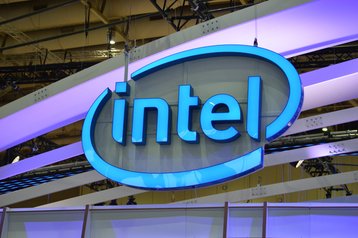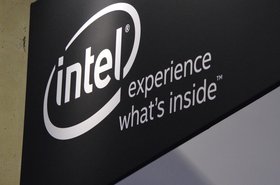Intel is canceling its Falcon Shores AI accelerator in an effort to concentrate its resources after the company posted a third consecutive quarter of revenue decline.
In the first earnings report since former CEO Pat Gelsinger left the company, Intel’s fourth-quarter revenue was down seven percent year-on-year (YoY) to $14.3 billion, whilst full-year revenue declined by two percent YoY to $53.1bn.
Despite the decline, the chipmaker’s quarterly revenue was stronger than expected, coming in above the $13.81bn that analysts had estimated.
Quarterly net loss totaled $126 million, bringing Intel’s net loss for the year to $18.8bn, a significant downturn from the $1.7bn in profit the company posted for FY23. The chipmaker said it expects to report revenue of between $11.7bn and $12.7bn in Q1 2025.
Intel also saw its Data Center and AI (DCAI) quarterly revenue decline three percent YoY to $3.4bn however, yearly revenue for the segment reached $12.8bn, a one percent increase from 2023. Intel Foundry suffered a similar story, with Q4 2024 revenue down 13 percent YoY to $4.5bn and yearly revenue down seven percent to $17.5bn.
Speaking during Intel’s fourth-quarter earnings call, interim co-CEO Michelle Johnston Holthaus said “AI data center… is an attractive market for us over time, but I am not happy with where we are today.”
She continued that while Intel has a “leading position as the host CPU for AI servers,” the company is “not yet participating in the cloud-based AI data center market in a meaningful way.”
Consequently, Holthaus said she had made the decision to “simplify our road map and concentrate our resources… [and] based on industry feedback, we plan to leverage Falcon Shores as an internal test chip only without bringing it to market.
“This will support our efforts to develop a system-level solution at rack scale with Jaguar Shores to address the AI data center. More broadly, as I think about our AI opportunity, my focus is on the problems our customers are trying to solve, most notably, to lower the cost and increase the efficiency of compute.”
The Falcon Shores GPU is a hybrid processor designed to support AI and HPC applications and increase performance and performance-per-watt efficiency. Described by Intel as its first multi-chiplet offering, it combines the x86 and Xe GPU hardware on a single Xeon socket chip.
Following Holthaus’ comments, her co-CEO and current Intel CFO David Zinsner gave an update on Intel foundry, telling analysts that the ramp-up of Intel 18A in the second half of 2025 “will support increased volumes and improved profitability in 2026.”
He added that the company remains “highly focused on our goal of delivering break-even operating income for Intel foundry by the end of 2027” and that the business unit expects to “demonstrate improvements this year.”
Zinsner also revealed that Intel had received $1.1bn of CHIPS Act funding from the US government in Q4 FY24 and an additional $1.1bn in January of Q1 FY25.
In November 2024, Intel signed an agreement with the Department of Commerce which saw the company awarded $7.865bn in direct funding, to be disbursed based on Intel’s completion of project milestones.
“In addition, we continue to make good progress building out our Secure Enclave in partnership with the Department of Defense,” Zinsner said on the call. “We look forward to continued engagement with the Trump administration as we advance this work and support their efforts to strengthen US technology and manufacturing leadership.”
He concluded his opening comments by saying Intel’s board remains “intensely focused” on the company’s search for a permanent CEO.







